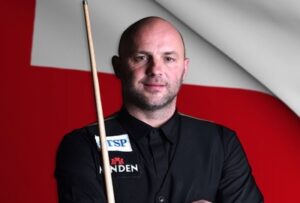 We humans are a complex species.
We humans are a complex species.
Our brains reportedly process over 11 million bits of information every single second, yet our conscious minds can handle only 40 to 50 bits of information per second.
That’s an awful lot going on automatically in the background.
Somewhere in amongst all of that, is our capacity to regulate ourselves and our behaviours, but as we all know, that is much easier said than done.
Have you ever shouted at another road user while driving your car? Have you ever had an extra bowl of ice cream just because you knew there was more in the freezer? Have you ever turned off the alarm and gone back to sleep rather than getting up and going for a run like you promised yourself you would?
We are all far from perfect, and we fail to regulate our behaviours and emotions many times on a daily basis.
But for some people, the struggle to control themselves can cross over into addiction.
Addictions have no prejudices, they can hit anyone of any race, religion or social class, and they come in many forms; food, alcohol, drugs, sex, sugar, social media, nicotine, online shopping, work, videogames, and of course – gambling.
All of these addictions can be harmful, some more so than others, whether that be harmful to your physical and mental health, or to your wealth – but gambling in particular is an addiction that is an especially emotive topic.
A 2013 study showed that gambling addiction was three times more prevalent amongst top sports professionals than amongst the general population, and since many of these people are in the public eye, that can bring a lot of media attention to gambling addiction.
But what is it about gambling that draws in professional athletes over other vices; why are they more likely to stray from responsible gambling to irresponsible gambling; and who are some of the most famous cases?
Why Are Professional Athletes and Sports People at Greater Risk of Gambling Addiction?

There is still a lot of research being done into this subject, but from what we know, it helps to look at what sort of people tend to become professional sports men and women in the first place.
We have to generalise to do this, so it goes without saying that not all sports professionals will match some of the descriptions in this section, but in general, sports people are:
- Competitive
- Tactical
- Ambitious
- Optimistic
- Thrill seeking
Some of these traits tie in with each other, but we can look in more detail at some of them below.
Competition
Competition is the big one here.
A professional athlete is trained to be ultra-competitive, to the point where it becomes part of their DNA. They are not only competitive with the people and teams they play against, but also against other players who may be on their own side – two forwards battling for a place in the team, for example. They even compete against themselves to achieve personal bests, and to top previous records, etc.
This can easily spill over into day to day life, whereby the person needs to find ways to compete with those around them regardless of what it is. The desire to win, whatever the game, is ever present.
Gambling is competitive by its’ very nature; the challenge is to beat the bookie, and there is even a monetary reward for doing so.
Added to this, is the possibility that for some athletes, the thrill they get from professional sports diminishes over time; their experience means they build up a tolerance to that adrenaline rush they used to get when playing sport.
If that happens, they might want to find something to replace that feeling, and gambling fills the space.
Tactical
A sports person needs to be tactical by definition.
No sport is won by brute strength or blind speed alone, there is always the opponent to consider, and whatever obstacles they try and throw in your way.
Using tactics to outsmart an opponent feels good, and there is certainly a tactical element to betting, especially when trying to recover losses.
A professional athlete who loses money might start trying to work out ways to get that money back by adapting their strategy a little bit here, a little bit there, and trying to improve their ‘game’.
Of course, with most forms of betting, even those with a skill element, this isn’t really possible, so it becomes a simple exercise in chasing losses, which is a big no no.
A sports person’s mindset isn’t set up to accept a loss though, they need to work out why they lost, and fix that part of their game for next time.
Ambitious
Sports men and women want to win, they want to achieve.
They want to win the trophy/competition/tournament, and the only way to do that is by winning every match or game, and the only way to do that is to win more points and challenges and serves etc. then the other guy or girl.
Win win win win win.
But winning once isn’t enough, they then have to go and win again, and again, and again. Or win something bigger, better, harder to achieve.
Then, when they do win something, they are usually rewarded with medals or trophies, not to mention the financial rewards that often come the way of professional athletes.
Apply this mentality to gambling and you have a problem.
Betting frequency increases, stakes get higher, and as a consequence, so do losses.
The other thing to consider is the culture around betting within professional and amateur sport. Football, cricket, snooker and rugby players have all been quoted saying that low level gambling goes on between team mates.
If the changing room regularly has small wagers flying around, such as two players betting a tenner that one of them will score first, for example, then there could be pressure to gamble in order to fit in.
This goes hand in hand with the personality traits we have discussed, so perhaps the two elements create a self-fulfilling cycle of sorts.
We also wonder whether an element of recklessness is at play.
If you think of the daily life of a professional athlete, they have to watch what they eat and drink, exercise regularly, take care of their bodies, get plenty of sleep, pay close attention to any old injuries, and mind what they say in interviews.
There is a lot of self-regulation going on there, a lot of things they can’t do, or say, or consume.
Perhaps gambling is a way to rebel, an outlet for all the times they had to make the professional choice. A few drinks the night before a big game could have an impact on their performance, saying what they really think in an interview could impact their career, but a few hands of blackjack or a bet on the table tennis won’t impact those things.
None of this is restricted to UK athletes either, the same problem exists in America – sports stars in the USA are actually 4 times more likely to have a gambling problem than the regular population, so it’s slightly worse over there – and doubtless many other countries too.
Sports Stars with Gambling Problems
As evidence of what we have been talking about so far, we can take a look at a few specific sports professionals who have battled with gambling addiction in the past.
Some of the names on this list just go to show that no matter how successful you are, the risks of straying into harmful behaviours remains very real.
Paul Merson – Football
 Arguably the most well-known gambling addiction in football, belongs to Paul Merson.
Arguably the most well-known gambling addiction in football, belongs to Paul Merson.
He was a dominating force on the football pitch, but off the pitch, something else was dominating him.
Merson first fell foul of alcohol and cocaine addiction, and although he always liked to gamble, he has said that it was only after the battled to give up the booze and the drugs that gambling really got a hold on him.
At one point, Merson was in debt to the tune of £7 million because of his illness, and even gambled away £160,000 his family had saved for a house deposit.
He was betting via a private bookie and spent his last £8,000 on a table tennis bet, a sport which he had no knowledge of, but it was one of the only things in-play at the time.
Paul has spoken openly about his past and campaigns for reform in the gambling industry; he has even made a documentary exploring both his own gambling addiction and the way it has impacted others, and written a book about his struggles.
Wayne Rooney – Football
 One player who seemed to get control over his harmful gambling behaviour, was Wayne Rooney.
One player who seemed to get control over his harmful gambling behaviour, was Wayne Rooney.
As a young player he was given God-like status, was showered in praise and money and was constantly in the news along with his other half, Coleen.
He was making £55k a week in 2004 when he was just 18 years old, but racked up debts of around £700k betting on sports. He would place them over the phone or online.
He would get bored while in hotels while playing away, which was how it started, but he has said that it “didn’t feel like real money” and he “didn’t realise the amount he was putting on at the time”.
Luckily, Wayne managed to knock it on the head fairly quickly, and paid his debts off thanks to his wages rocketing to £300k a week.
Although gambling wasn’t an issue that plagued Wayne for a long time, as evidence of just how easy it is to slip back into old habits, he reportedly lost £500k in a single night at a Manchester casino.
He had been left out of the Man Utd squad for their most recent game so perhaps he was unhappy about that, but he was placing large amounts on long odds roulette bets and kept losing, and it didn’t seem to deter him from betting more.
There have been no reports of dangerous gambling behaviour since then though, so fingers crossed it was just a small bump in the road for Rooney.
Ted Cheeseman – Boxing
 Welter weight boxer, Ted Cheeseman, had a gambling problem from an early age, and estimates that he essentially boxed for free from his first fight in 2015, until the fight that changed things for him in 2019.
Welter weight boxer, Ted Cheeseman, had a gambling problem from an early age, and estimates that he essentially boxed for free from his first fight in 2015, until the fight that changed things for him in 2019.
That fight was for the European light middleweight title, but Cheeseman had already gambled the last of his purse for the fight the night before. It had been a similar story for his 15 previous fights – the money was spent before, or shortly after, it was earned.
Towards the end of the fight against Garcia, Cheeseman wasn’t even defending himself, he was simply letting Garcia hit him; he has said since that he was punishing himself.
He told his trainer about his addiction that same night, and aside from a £20 bet on the Grand National two months later, he hasn’t placed another bet since.
Cheeseman described his mentality during his addiction. He said if he won £10,000, instead of thinking about what he could buy with it, he would be thinking about how he could turn it into £30,000 at the bookies.
He is lucky in that he found the right help early in his life – he was 23 in 2019 – but says that the regret is the hardest thing to deal with, knowing he once had a lot of money but now sometimes worries about the bills.
Ted estimates he lost hundreds of thousands of pounds and maybe even as much as a million during his 5 years of addiction, but is now dedicated to living the rest of his life gambling free.
Chris Wood – Cricket
 Long serving Hampshire player, Chris Wood, has been vocal about his gambling addiction, and is one of many pros to claim that gambling is a hidden issue in the sport.
Long serving Hampshire player, Chris Wood, has been vocal about his gambling addiction, and is one of many pros to claim that gambling is a hidden issue in the sport.
A lot of private gambling goes on in changing rooms according to Chris, and this leads on to more serious bets being made via online bookmakers.
An 11 year addiction left Chris £200,000 in debt, and even though he sat down with his team mates to tell them about his problem in 2013, it didn’t stop him placing bets.
He would end up placing big bets on sports he didn’t even follow in the middle of the night, just to get a dopamine hit, and was maxing out credit cards (before the ban) and ruining his relationships.
His worst point came during an injury where he was effectively bedridden for 6 weeks and contemplated whether life was worth living at all.
It was actually listening to Arsenal legend, Tony Adams, give a talk about his addiction and his charity, Sporting Chance, that proved the turning point for Chris.
He was inspired to ask for help, realised he wasn’t alone, and has happily not placed a bet since December 2018.
He now talks to other elite athletes about his experiences, and educates them on why they are more vulnerable to gambling harm than a regular Joe.
Mark King – Snooker
 Despite being ranked inside the top 32 players in the world 9 times between 1996 and 2015, reaching number 11 in the world in 2002, Mark King had been struggling with a gambling problem since he was a teenager.
Despite being ranked inside the top 32 players in the world 9 times between 1996 and 2015, reaching number 11 in the world in 2002, Mark King had been struggling with a gambling problem since he was a teenager.
Starting with card games for few pounds, he progressed to spending all night in card clubs gambling into the early morning, and then ended up visiting a bookies and wagering on the horses and the dogs. He also tried casinos and roulette machines, and before long he was gambling on pretty much anything there was a market for.
Things got so bad that he went broke, sold his own snooker table for £1,000, and ten minutes later had lost it at the betting shop. At one point he was £100,000 in debt, and estimates that he has lost £500k all in all over the years.
He even contemplated robbery to get money to gamble.
Mark has been quoted as saying, “When I gambled I was like a firework that went off and I just didn’t care who I hurt. My wife and three children could be on their knees saying ‘please dad don’t go’ and I’d just walk out.”, adding, “It was disgusting and I hate that person.”
Happily, things have changed for Mark.
He placed his last bet in December of 2012, but says he still contemplates the idea sometimes, and the thing that keeps him from doing so is attending regular Gambler’s Anonymous meetings.
He first attended one in 1997, but started going regularly in 2003. Considering his last bet was made in 2012, you can see just how hard Mark has had to battle to keep his addiction at bay.
Tony Adams and Sporting Chance
One man who understands the issues around professional athletes and addiction more than most, is ex-England international and defensive giant, Tony Adams.
He himself was an alcoholic for much of his playing career, although has been sober since July 1996, and now runs a clinic aimed at helping professional or ex-professional sports people with addiction problems.
A few years after getting sober, Adams began researching what help was available to athletes with addiction struggles, and found out that there was basically none.
There was definitely a need though, and in 2019 the clinic helped more than 1,200 sports men and women with their addictions and mental health problems, with 653 of them being footballers, 40% of whom were retired.
The clinic isn’t specific to one type of addiction, but Tony says gambling addiction within sport in general is on the rise going by the people who contact his clinic, calling it the “current curse”. Footballers, cricket players, and rugby players are especially prone to gambling issues, while cocaine is apparently a bigger issue for the likes of jockeys.
By his estimates, only about 10% of addicts manage to stay clean for 10 years or more, with many either falling back into old habits or swapping one addiction for another.
When it comes to football and gambling, he thinks there is something of an epidemic going on and that they should “get advertising out of the game” as it “normalises” gambling.
Of all the sports professionals who contacted Sporting Chance seeking gambling related help in 2019, 60% of them were currently playing or competing. What’s more, gambling issues far outweighed those like drugs or alcohol.
The charity wrote an open letter requesting reform, and while they stressed that they were not an anti-gambling organisation, they were unequivocal that change needed to happen.
Sporting Chance have developed their own program for people struggling with gambling addiction called G.A.T.E. This stands for Gambling Awareness Treatment and Education, and the program includes CBT, psychotherapy, education on safety nets etc., and even residential treatment if necessary. They only match their patients with therapists who have relevant experience in gambling and addiction therapy.
Gambling Addiction Help and Support
We have a whole page dedicated to responsible gambling and help and support options for anyone suffering with gambling related problems, but if anybody has read this article and wants to seek help without delay, the following options are available to you:
- GamCare – Confidential advice and support: 0808 8020 133 or via Whatsapp on 020 3031 8881 / www.gamcare.org.uk
- BeGambleAware – Educational information on helping yourself or others / www.begambleaware.org
- Gambling Therapy – Free online help and support groups. Residential help also available / www.gamblingtherapy.org
- Gamblers Anonymous – Online and real world support by way of regular meetings: 0330 094 0322 / www.gamblersanonymous.org.uk
You can also contact your GP and ask for a referral to get help via the NHS, but this will probably take longer.